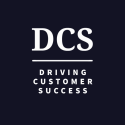Customer Success Managers: Keys to millennial business owner loyalty
By Martha Bartlett Piland
Millennials form the largest adult generation in North America, numbering 76 million people.
Thirty percent of them have a small business or a side hustle, and “entrepreneurship is the goal of 56 percent of them,” reports Forbes.
This should be a wake-up call to bankers everywhere. While baby boomers are still the majority of business owners, there are also an estimated 23-43 million millennial business owners with financial needs very different than other generations. And their numbers are expected to increase.
Bankers who pay attention and fill these unique needs stand to win.
Banktastic recently conducted focus group conversations with some of these millennial small business owners to learn about their likes, dislikes, and unmet needs from their banks.
Several eureka moments surfaced in these discussions. But a key theme was that they crave more guidance from their bankers. “We don’t know what we don’t know,” says one participant. As conversations unfolded, one topic that consistently rises to the surface is the need for a business customer success manager.
Why a customer success manager?
Many consumers adopting new CRMs, automation platforms, databases, or other technology are assigned a customer success manager. Those managers help customers adopt and utilize new technology as fully and effectively as possible. Translating into a greater perceived value for the expense outlay and greater customer loyalty.
These success managers do more than onboarding. They are coaches, analysts, and counselors. Many schedule future check-ins and assign homework to move that new customer deeper into product use.
Millennials, the first generation to have grown up with all-digital technologies, are accustomed to this type of service in other areas. Translating similar support to their business financial lives makes sense. Innovative bankers, take note.
In their own words
Many millennials say they feel less financially savvy than those of other generations. They report that they are hungry for financial education and cite searching on the internet, watching YouTube videos, and asking parents and friends for guidance.
But are those really the best resources to use? Business owners have complicated financial needs to solve. There is no one better suited to help small business customers successfully use bank products than bankers.
Here are some direct quotes from Banktastic research on this topic:
- “I just think having more support out of the gate, them asking us ‘Hey, how can we help you be successful?’ … For me at least, that would have gone a long way.”—Specialty health drink producer.
- “I needed somebody to tell me, ‘You don’t need that much cash in your checking account on a daily basis. Go and invest some of that and keep only what you need for regular cash flow.’ I assure you, I have a master’s, MBA, and I understand money and business. It just never occurred to me, and so if my bank had called me and said, ‘Look, we’ve got this great CD, go put that money there,’ I would have said great, where do I sign?”—Professional services firm owner.
- “I was very fortunate to start with the bank I did, because they were … my biggest cheerleaders and pointed me in directions I didn’t even think about. They were there to guide me in a lot of ways. This is a strong relationship.”—Arts/entertainment retailer.
- “My bank is not my partner in anything. I don’t feel like I have a contact person. I don’t feel I can go to them with questions … I don’t feel like they’re there to help me with my business.” —Boutique owner.
A customer success culture
At MidWestOne Bank, no single individual fills the position of a business success manager. But the bank’s team approach of connecting multiple bank departments to advise business customers serves this purpose.
Scott Jamison, business banking officer, and Angie Brown, VP and retail manager pull in their colleagues and get together as a team.
“We partner to try and get as many of our people in front of the customer as possible,” Jamison says. “That team approach brings experts in each area working together for the benefit of our customers. This also means they still have great service if one banker is not available. Others familiar with the account can take care of them.”.
Team meetings are scheduled every other Monday to discuss business customer accounts, what’s happening, and how the bank can proactively offer customized assistance.
“We have regular electronic onboarding alerts for new customers and we also use our CRM quite fully,” Brown says. She adds they also work at the branch level to help customers get to know people in their nearby bank branch to connect the dots between bankers and customers.
“This helps customers feel more comfortable when they come in,” she says. “We bring lines of business into our branch meetings to help them know how we work and how to refer. Together, we work on the best way to assist that customer.”
For millennials, Jamison says it’s especially important to find ways to connect with customers in the way they are most comfortable. “Millennial business owners, in particular, will say ‘shoot me a text,’ so we have to find new avenues to bring value to them,” Brown says “That can be harder in those short messages. We have to figure out how to adapt our communications to them, not the other way around.” She says MidWestOne Bank does this frequently with special splash pages, on its blog, and with in-person visits. “We don’t just wait for them to come in,” Jamison continues. “We visit and talk.”
Thinking outside the branch
Britney Campbell, CFMP, senior VP of marketing and public relations at Legends Bank is also the founder and co-creator of Her Bank , a brand of Legends Bank developed specifically to appeal to women business owners in the middle Tennessee area. That’s a different approach to customer success and one that also deserves a closer look.
“I found a women’s co-working incubator space literally right before the pandemic,” Campbell says. “Events got paused. People had to pivot and businesses needed their banks more than ever. I took this unique opportunity to learn and wanted to create solutions that mattered. I wanted to understand women’s relationships not just with banking, but with money. I wanted to know what was valuable, what topics they wish they knew more about or resources to access, why they loved or disliked the bank they were with, and their fears related to money and finances. And ultimately what they wanted from their banking experience.”
Campbell had numerous conversations with female entrepreneurs to find out how to create a valuable banking experience for women that would go beyond the transaction. Through that process, she and a small team of “bankHers” launched Her Bank, creating a space, whether in-person or virtually, to meet women where they are to support them on their financial journey.
In addition to branded services marketed to this group of young businesswomen (mostly ages 30-45), Campbell and her team have helped build an ecosystem of women who network, create new relationships, and refer each other to business and personal development resources. Which has built considerable trust and become a valuable resource.
Campbell says she finds great satisfaction in surrounding these business owners with opportunities for success. She has made Her Bank a go-to resource for these young entrepreneurs both financially, and with other resources like business coaching and a place to find other essential services. “We’re a resource of resources,” she says. “We’ve created an ecosystem within our own client base. I love it that we’re a trusted specialty lifestyle brand for banking.”
Measuring the ROI
It can be difficult for bank leadership to consider funding staff positions that don’t correspond directly to income, as on the loan side.
“It takes more resources to do something like this,” says Shelly Loftin, CFMP, senior VP, retail banking, payments, and lending at American Bankers Association. “Aspirationally, there are a lot of banks that want to be more relational than transactional. It’s on their wish list. But it’s hard. What’s the measure of success?”
It’s possible that a bundled business account with business success support could generate some fee income that offsets this expense.
One focus group participant who owns a product promotional company says: “I’m not opposed to (the bank) making money. Just give me something for it, like there’s value there. Like, make me actually feel supported.”
MidWestOne Bank takes a long view. Brown says earlier stage businesses need trust building. “We want to make sure we’re not losing them, Brown says “Maybe they’re not ‘there’ yet. But we don’t want to lose sight of them. If the bank is in front of them early on—and let them know the expectations—we can stay in front of them and help them be successful.”
Campbell asks: “How do you put an ROI on helping people?” At the same time, she says they have huge social media engagement, tremendous local media recognition, and significant growth in new small business customers.
Fee income aside, when banks can create value-driven, stickier relationships, the ROI to the bank will follow. Over the long term, as banks help the business owner prosper and grow, customers view banks as a partner to continue to help them as their financial needs grow. Do that, and they won’t consider looking anywhere else. Multiplied across many customers—that’s a big return.
A rose by any other name
To attract millennial business owner customers and win their loyalty, a focus on proactively supporting their success is essential. It doesn’t matter what you call it. Whether you establish new titles and positions on the org chart, institute enhanced teamwork structures and systems, or create a brand extension, a strong focus on millennial business customer success offers the opportunity to separate banks from a sea of competition that exists across the street and across the internet. Your investment in millennial business owners success is the key to their loyalty.
Martha Bartlett Piland, CFMP, is president and CEO of BANKTASTIC, a marketing agency.

Hakan Ozturk
Founder, theCScafe.com, #1 Weekly Customer Success Newsletter
Hakan Ozturk is a Paris-based Customer Success leader with over 15 years of experience in the computer software industry. Passionate about driving growth and delivering value to strategic customers, Hakan has established himself as a trusted industry expert. As the Founder of The Customer Success Café Newsletter and TopCSjobs.com, Hakan provides valuable industry insights and daily-updated job opportunities worldwide in the field of Customer Success. Connect with Hakan to boost your career in CS and your company’s potential for massive growth.

Leave a Reply